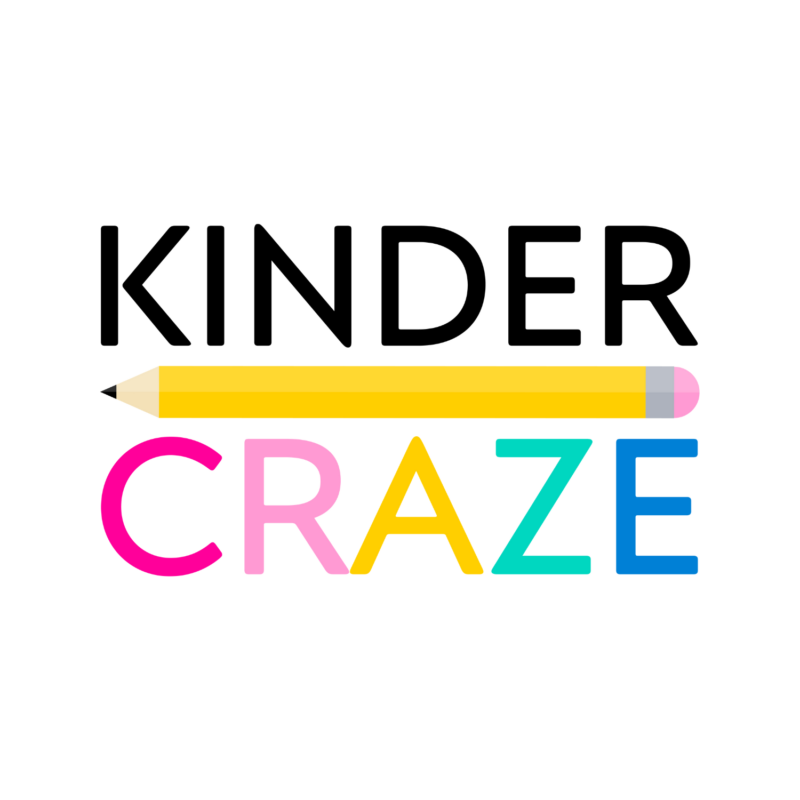

This post contains affiliate links. I earn a small commission each time someone makes a purchase through one of my links, which helps to support the blog.
Welcome to week 3 of the Freebielicious Summer Book Study! Now that we’ve talk about how to prepare for guided reading, it’s time to dive right in to the fun of actual guided reading! In chapter 3 of The Next Step of Guided Reading, Jan Richardson does SUCH a wonderful job of holding our hand as we guide our youngest and most novice students through literacy basics and emergent reading. This week we are linking up with a few of my blogging buddies: Kindergarten Lifestyle, A Special Kind of Class, and A Differentiated Kindergarten. At the end of this post you find links to follow and join in with the other book study participants.
I found Jan’s information and suggestions for pre-emergent reading to be so compelling and helpful. Many of my students enter kindergarten with a strong sense of letters and books. Most of these students attend preschool at my school and come from households in which parents make learning a priority. These children are not starved for books or basic knowledge about letters, words, or how to handle a book.
Of course, not all of my students enter kindergarten as emergent readers, but many do. The ease of teaching so many children with a strong literacy background makes it easy to take the essential Pre-A skills for granted. Indeed, I found myself POURING over every detail in the Pre-A section of Chapter 3. I know in my heart that the Pre-A students that step into my classroom need my help so much more than the children that are already emergent readers, but I have not always been aware of the tools to help them grow and succeed. And then I cracked open Chapter 3 of The Next Step in Guided Reading. Although the chapter was jam-packed with so many wonderful ideas, I am just going to share a few of my new ideas and insights with you today.
I was stunned to hear that the implementation of a simple alphabet tracing book has the capability to help students make great strides forward in alphabet recognition. Never in my life would I have dreamed that the simple act of using a finger to trace every letter of the alphabet and say the name of the letter could so easily and effectively help struggling students with letter identification.
Now that I am aware of the power that this book holds for teaching Pre-Emergent readers, it will be used DAILY in my classroom for students to finger-trace with the help of my army of eager parent volunteers.
You can purchase Alphabet Tracing Cards in my TpT store. Just print, laminate, and bind into a durable classroom book.
Want to know more about how I use an Alphabet Tracing Book in the classroom? You an read all about it in this blog post.
In the Pre-Emergent section of The Next Step in Guided Reading, Jan Richardson also talks
extensively about the use of an alphabet chart during instruction. An alphabet chart is a very useful tool that is helpful for so many skills and activities; such as matching tile letters to the letters on the chart or tracing each letter with a dry-erase marker. You can download a free alphabet chart that coordinates with all of my alphabet classroom decor. Just enter your email below and it will be sent right to your inbox!
The actual “guided reading” portion of your group lesson plan for Pre-Emergent readers requires the EASIEST of EASY books with the same sentence pattern repeated on each page. If your school does not have a book room with sets of leveled books for teachers to use during guided reading instruction, you can purchase pre-emergent books from scholastic. Here are a few favorites from my own classroom:
Scholastic really hit the nail on the head when they created their series of Guided Science Readers. These little books are my absolute favorite books that Scholastic makes. They are frequently offered in the book clubs and new sets are available to purchase each season. These books are from a spring collection that Scholastic released this past year.
My students love the photo illustration. I adore the simple sentences in a nice LARGE font and the fact that these non-fiction texts lend themselves to objectives in the Common Core.
Another popular book series from Scholastic are their High Frequency Readers. These also feature simple sentence structure on each page with lots of repetition. The illustrations are very clean, appealing, and kid-friendly. Many of these books are authored by Gay Su Pinnell, another pioneer in children’s literacy.
Last up are the First Little Readers series of books. These small little books also feature simple sentence repetition and cute illustrations. The print on each page is kind of small and may not be the best choice for lowest readers that are still learning to distinguish between words, letters, and spaces.
Of course, once students move into the next phase of Emergent Reading, traditional guided reading lesson plans can begin. Simple stories are still an essential material for your guided reading lessons, but sight word instruction begins once students have a firm grip on letter recognition. My Interactive Sight Word Readers are the perfect resource for this guided reading level. Each book features a predictable sentence with a fun twist for sight word practice. Students cut out, unscramble, and glue letters to correctly spell a featured sight word on each page of the book. My students LOVE these books and they have been hot-sellers on Teachers Pay Teachers.
With over 75 titles to choose from, Interactive Sight Word Readers are available in variety of seasonal themes for the entire course of the school year. Each downloadable book costs $1, or a bundle is available at a reduced price of 45%.
Interactive Alphabet Books (seen in a photo at the top of this post) are also available for $3.50 to help students identify capital and lowercase letters.
Want to know more about ways to implement Pre-Emergent and Emergent guided reading groups in your own classroom? Stop by my friends’ blogs to read more and discover great links from other bloggers. You’ll find more information at Kindergarten Lifestyle, A Differentiated Kindergarten, Kinder Alphabet and A Special Kind of Class.
Join me next week as the book study continues and I share ideas for Early Guided Reading.
What are some of your favorite tools to implement in your Pre-A and Emergent guided reading groups?


I’m a former kindergarten teacher turned work-from-home mom. I still love sharing ideas and resources to make teaching easier, so you can focus on what really matters in the classroom. When I’m not working on the blog, you’ll find me chasing kids around the house with a cold cup of coffee in my hand (some things never change even once you’re out of the classroom!)

©2021 Kinder Craze. All Rights Reserved.

11 Responses
I love your Interactive Sight Word Readers and Alphabet Books!! They are perfect for young learners and I cannot wait to purchase them! Thank you so much for creating these!!
Love the freebie and your photos are TDF!
Jennifer
First Grade Blue SKies
We love us some interactive sight word readers in my class…yours are a favorite! Thanks for linking up Maria.
Marsha
A Differentiated Kindergarten
Fabulous post! 🙂
Mary
Mrs. Lirette’s Learning Detectives
My kinders come into school like yours, Maria…. ready to read and with parents who are supporters of their learning. I am excited to implement the Pre-A skills in my own classroom. Thank you for sharing your thoughts!
Cindy
I LOVE all of your ideas! Your blog and pictures are just gorgeous 🙂
❀Jodi
Fun In First
I love all the blogs for this book study, especially all the pre-a reading ideas. So simple, but so powerful! I am in LOVE with your interactive sight word readers. They are on my wishlist for sure!!!! Thanks for sharing!
Amanda @
Teacher at the Wheel
Just an FYI – I love the little alphabet book you made from the bulletin board set. I have seen those at the Dollar Tree in case you want to share with all your blog readers… I can’t remember if they had the strokes, but the one I saw had the letters, a picture for each and I believe the word. Worth checking out. I agree it is a great tool for Class Library and Guided Reading groups.
Love your interactive sight word readers! And thank you so much for the freebie…just one quick question…what is the picture for ‘n’?
🙂 Katrina
Hi Maria – just a quick question: when the kids are matching the letter tiles to the letters on the alphabet chart, how many tiles do you put out for them to use? Just 1 set of 26 letters?, or several letter tiles? And what do you put your letter tiles in when they match them to the chart? A container of some sort? Thanks for your tips!